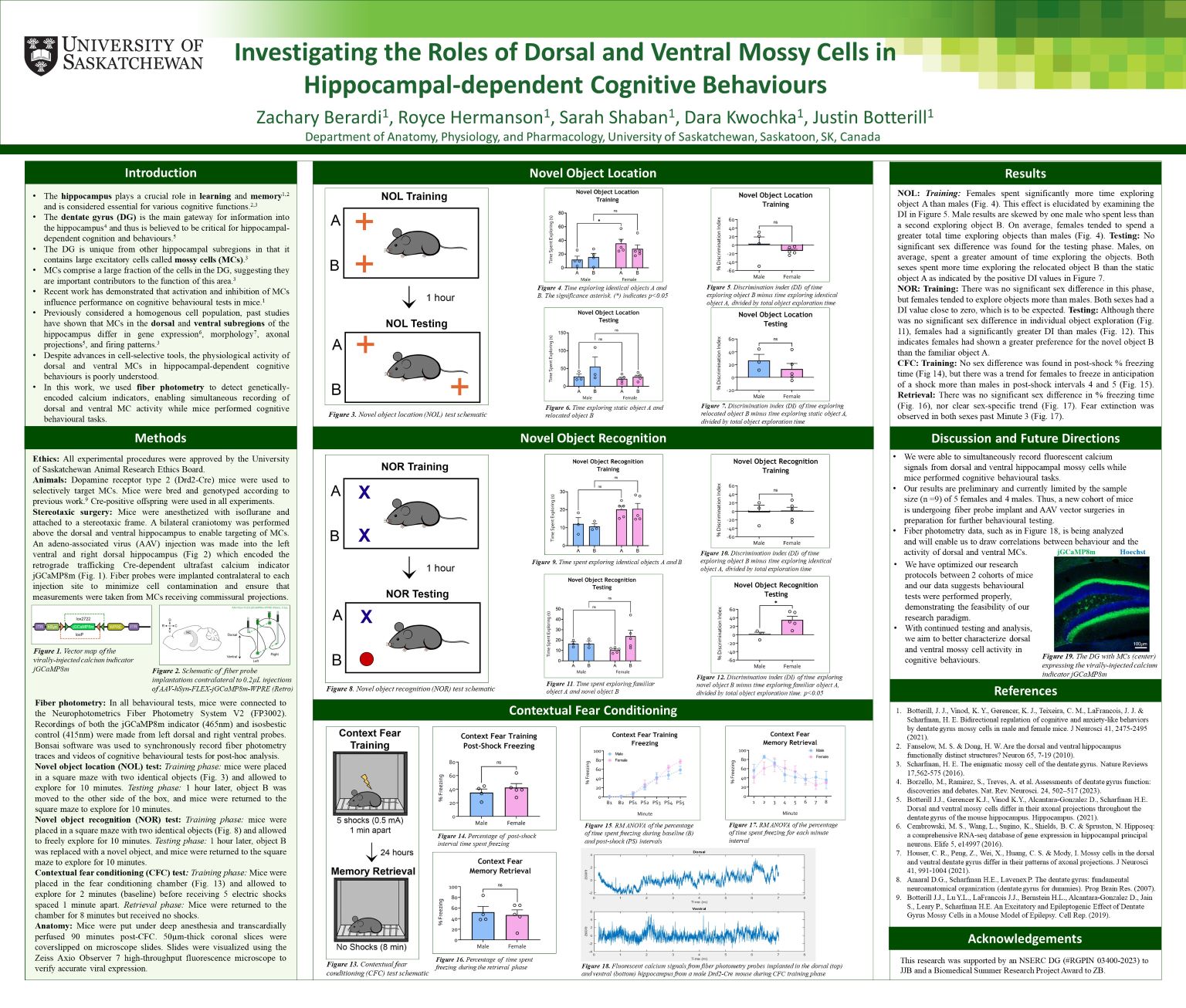
Investigating the Roles of Dorsal and Ventral Mossy Cells in Hippocampal-dependent Cognitive Behaviours
Zachary Berardi
The hippocampus is broadly implicated in learning and memory, but many cells and circuits that influence cognition remain poorly characterized. Mossy cells (MCs) are a relatively understudied cell type in the main input region of the hippocampus called the dentate gyrus. Recent work has shown that MC activity influences hippocampal-dependent cognitive behaviours, yet most research has examined only artificial manipulation of MC activity. With advances in cell-selective tools, a growing body of literature has reported differences in gene expression, morphology, firing patterns, and axonal projections between MCs in the dorsal and ventral subdivisions of the hippocampus. Importantly, it is poorly understood whether dorsal and ventral MCs serve different roles in cognition. This project utilized dopamine receptor type 2 (Drd2-Cre) mice and fiber photometry to genetically target and selectively record the activity of dorsal and ventral MCs during cognitive behavioural tasks (novel object tests, contextual fear conditioning). Behavioural results revealed sex differences in both object tests, but effects are limited by a small sample size. Thus, future cohorts will be incorporated. We have collected time-synced fiber photometry data and analysis is currently underway. Our next steps are to compare dorsal and ventral MC activity and correlate MC activity with behaviour.
